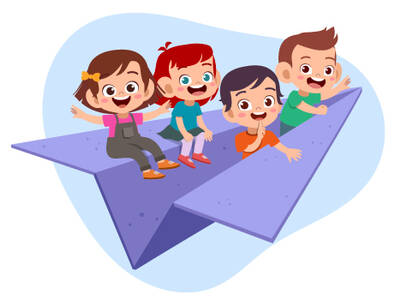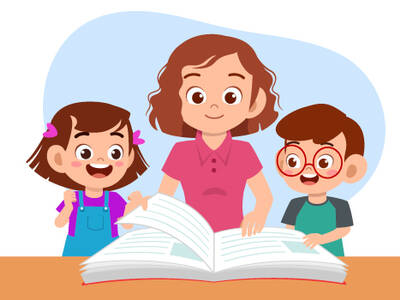Association NAIA
was found in 2002 as one of the first NGO in Targovishte region and is the only one that since its establishment has been working purposefully against violence against women and children. The mission of the organization is to provide psycho-social support, assistance and counseling of vulnerable groups of society in order to achieve equality. The aim is to create a social environment that supports and promotes equal rights and opportunities for women and men in all spheres of economic and social life, such as the prevention of gender-based violence.
The main activities of the organization are:
1. Support and protection for victims of domestic violence - providing psychological, legal and social support for victims of domestic violence for their emotional rehabilitation, social integration and legal protection.
2. Work with perpetrators of domestic violence in order to provide better protection for victims and prevention of recidivism;
3. Strengthening the capacity of professionals from different institutions for coordinated work in cases of victims of domestic violence.
4. Prevention of gender-based violence through educational and training programmes in kindergartens and schools, youth volunteer campaigns, seminars with vulnerable groups of young girls and women from small towns;
5. Advocacy campaigns for more women in local politics and decision-making;
6. Programmes for support of children and families through innovative health, social and educational care practices.
Association NAIA is a founder and a member of the Alliance for protection against gender-based violence, a member of the National Network for Children and a member of Work with Perpetrators European Network (WWP-EN).
Association NAIA has two awards for the best social project in Bulgaria. NAIA was third winner in 2019 Civil Society Prize of The European Economic and Social Committee (EESC) from among the 177 citizens' initiatives that champion equal opportunities for women and men and contribute to empowering women in society and the economy.
Defence For Children International Italy (DCI Italy) 
is a leading child rights-focused and membership-based grassroots movement founded in 1979. Its mandate is to ensure effective implementation of the United Nations Convention on the Rights of the Child (UNCRC) at the local, national and international level.
DCI’s vision is that children, as human beings, are able to pursue a life in which they can enjoy their human rights with dignity, in a just and responsible society.
The organization works in a transparent, accountable, sustainable way aiming at social transformation.
Defence for Children International Italy (DCI Italy) was established in Rome in 2005. It became a DCI section in 2008 during the 10th International General Assembly of the DCI movement. DCI Italy can count on a General Assembly composed of 11 members, a coordination team and a number of volunteers and consultants. The organization focuses its activities on justice for children (in particular children in conflict with the law and children victim of crime, violence and abuses), migration (in particular children on the move, protection from child trafficking and promotion of guardianship and qualification of other form of support for migrant children and young people), education and awareness raising on children’s rights.
In order to reach its scope, DCI Italy undertakes the following activities: analysis and research, to understand which are the elements that determine the violation of children’s human rights; information, sensitization and training, to raise awareness, promote understanding and skills development; report of violations, in order to immediately put a stop to abuse and take on the responsibilities for a change; promotion of proposals, to orient policies, legislation and strategies; development of pilot projects, for the identification of good practices that can be replicated; cross-border services, in connection with local social services and judicial authorities in order to support individuals having difficulties of a social and legal nature as a consequence of international migration or displacement.
The organization is the Italian member of International Social Service, an international network present in more than 120 countries worldwide that assist children and families in addressing complex social problems as a result of migration phenomena.
WOMEN’S CENTER OF KARDITSA, WCK

is a non-profit Municipal organization, established in 1992. It is the oldest Women’s Supporting Center in Greece and the only one in Greece that “belongs” to the Local authorities, the Municipality of Karditsa.
WCK is also a member of the National network consisting of AVCs and Shelters for women survivors of gender-based violence. This network operates under the auspices and authority of the Greek General Secretariat for Family Policy and Gender Equality.
WCK’s main concern is the continuous operation of a network of people-executives and organizations in local, regional, national and transnational level, to provide the best and more efficient services to all women.
WCK renders services through the following departments:
1. Department for the support of female employment and entrepreneurship
It provides career guidance and counseling to women who are seeking for a job for the first time, re-enter the labor market, or interested in creating their own business, expand or improve the existing one.
2. Department to support women survivors of gender-based violence and other vulnerable groups
This department supports women survivors of gender-based violence or of other vulnerable groups and their children, without any discrimination.
For this purpose a psychologist, a social worker, a reception counselor and a lawyer are employed, who inform, consult, support, and intervene for all the women who address to WCK.
Services aim to:
1. inform, support and encourage the women survivors of violence
2. prevent psychosocial malfunctions
3. study the human needs and problems resulting from the abuse as well as identify and eliminate the social problems which affect the social functioning of people
4. support and encourage women who find difficulties in remaining or becoming independent and self-sufficient.
5. inform, counsel and support psychosocially
6. raise public awareness on issues of abuse
7. plan, implement and feedback programs of social development and solidarity.
8. cooperate with local and national organizations to provide information, exchange experiences and develop common actions.
3. Children's Creative Occupation Centre
It operates since 1993, being the first children’s alternative creative evening occupation place in the city. Today covers the needs of care of the children of the women who are beneficiars of the WCK’s services, or work in the afternoon.
It hosts about 22 preschool age children, from 13.30 to 21.30.
4. Day Nursery / Creche
It operates in the Municipality of Karditsa since September 2002. It hosts 22 children from 2 months to 2,5 years old, from 06.30- 14.30.
The vision of WCK is that men and women can have equal rights and responsibilities, in terms of work, family, politics, authority, leisure time in a world without gender-based violence.
WCK, also implements National, Regional, Local and European projects aiming at:
• promoting equal opportunities
• fighting against discrimination and inequality in working environments, abolishing professional segregation
• combining professional and family life, by operating 2 structures for children from 2 months to pre-school age
• informing and activating citizens in matters of social inequality against women
• sensitizing them against violence against women, teenagers, children
• spreading practices for the implementation of the above
Related Articles
The project results contribute to promoting common EU values like pluralism, non-discrimination, tolerance, justice, solidarity…
This project's efforts are towards early prevention of gender-based violence, and gender equality by educating children at…
About 250 children aged 5 to 7 participated in this project in Bulgaria, Italy and Greece. In this age group, children typically…
The Fairy Tales Project has been implemented in three countries - Bulgaria, Greece and Italy - with the financial support…










